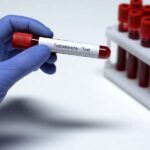Low testosterone, or hypogonadism, is a condition that affects millions of men worldwide. Characterized by reduced levels of the male hormone testosterone, it can lead to a variety of symptoms such as fatigue, depression, decreased libido, and loss of muscle mass. Understanding the best treatments for low testosterone is crucial for improving quality of life. In this article, we’ll explore the most effective treatments, including lifestyle changes, natural remedies, and medical interventions, with insights from experts at St Johns Wellness.
Testosterone near St Johns, near Jacksonville, near St Augustine. Hormone Replacement Therapy. Nocatee
Understanding Low Testosterone
Testosterone is a hormone produced primarily in the testes and is essential for male physical and emotional health. It plays a key role in muscle growth, bone density, red blood cell production, and overall vitality. Low testosterone levels can occur due to aging, medical conditions, or lifestyle factors. Symptoms may include:
- Decreased energy levels
- Reduced sex drive
- Mood swings and depression
- Loss of muscle mass
- Increased body fat
- Decreased bone density
Lifestyle Changes
- Exercise Regularly Regular physical activity, particularly strength training and high-intensity interval training (HIIT), can boost testosterone levels. Exercise promotes muscle growth, which in turn stimulates the production of testosterone. Incorporating a mix of cardiovascular and weight-bearing exercises can yield significant benefits.
- Healthy Diet A balanced diet rich in proteins, healthy fats, and complex carbohydrates supports hormonal health. Foods high in zinc and vitamin D, such as lean meats, fish, eggs, and leafy greens, are particularly beneficial. Avoiding processed foods and sugar can also help maintain healthy testosterone levels.
- Adequate Sleep Quality sleep is vital for hormone production, including testosterone. Aim for 7-8 hours of uninterrupted sleep per night. Establishing a regular sleep schedule and creating a restful environment can improve sleep quality.
- Stress Management Chronic stress elevates cortisol levels, which can negatively impact testosterone production. Techniques such as meditation, deep breathing exercises, and yoga can help reduce stress and promote hormonal balance.
Natural Remedies
- Herbal Supplements Certain herbs, such as ashwagandha, fenugreek, and tribulus terrestris, have been shown to boost testosterone levels. These herbs can improve libido, energy levels, and overall well-being. Consult with a healthcare professional before starting any new supplement regimen.
- Vitamins and Minerals Ensuring adequate intake of key vitamins and minerals, such as vitamin D, zinc, and magnesium, is essential for testosterone production. Sun exposure and dietary supplements can help achieve optimal levels.
Medical Interventions
- Testosterone Replacement Therapy (TRT) TRT is a common and effective treatment for low testosterone. It involves the administration of synthetic testosterone through injections, patches, gels, or pellets. This therapy can alleviate symptoms and improve quality of life. However, it’s important to discuss potential side effects and risks with a healthcare provider.
- Medications In some cases, medications such as clomiphene citrate or human chorionic gonadotropin (hCG) may be prescribed to stimulate natural testosterone production. These medications can be particularly useful for men who wish to maintain fertility.
- Consultation with Specialists Consulting with specialists at clinics like St Johns Wellness can provide a tailored approach to managing low testosterone. These experts can conduct thorough evaluations, recommend appropriate treatments, and monitor progress to ensure optimal outcomes.
Conclusion
Managing low testosterone effectively requires a multifaceted approach that includes lifestyle changes, natural remedies, and, when necessary, medical interventions. Regular exercise, a healthy diet, adequate sleep, and stress management are foundational to maintaining healthy testosterone levels. Herbal supplements and vitamins can provide additional support, while medical treatments like testosterone replacement therapy offer a more direct approach for those with significantly low levels.
For personalized advice and treatment plans, consulting with experts at St Johns Wellness can make a significant difference. Their comprehensive approach ensures that each individual receives the care and attention needed to address low testosterone and improve overall health and well-being.




